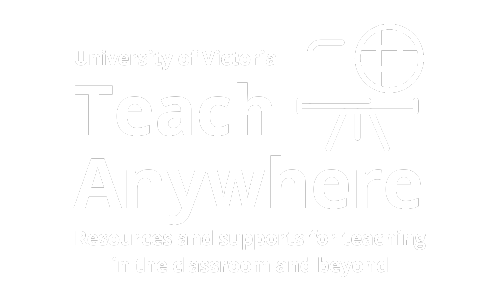About the grant
The Strategic Initiative Indigenous (SI-I) Grant is intended to support faculty and staff to substantially revise programs, courses, curricula, or learning resources that will help fulfill UVic’s commitment to reconciliation with Indigenous peoples. This supports the University’s commitment to reconciliation, as expressed in its Indigenous Plan. It is intended for projects that develop opportunities for UVic students to gain a better understanding of Indigenous peoples, history and culture, and the impact of colonization.
Specifically, this grant applies to proposals involving course or program development with a focus on:
- emphasizing, valuing and integrating Indigenous ways of knowing, being, and doing;
- deconstructing colonialism and de-centering unequal colonial knowledge structures;
- promoting reconciliation of power relations between Indigenous and non-Indigenous peoples; and,
- addressing specific Truth and Reconciliation Commission (TRC) Calls to Action.
Request a consultation
Timeline
Application Guidelines
Materials and submission form available by December 1, 2024.
Grant Deadline
Each grant will be due by 11:59pm, February 24, 2025.
Adjudication Process
Grant committees will meet in the following 30-60 days.
Applicants Notified
Applicants will be notified Spring 2025.
Eligibility
The strategic initiative Indigenous grant is open to:
- Single or co-applicants who directly support student learning and the student experience at UVic (includes research and teaching stream faculty, sessional lecturers, laboratory instructors and relevant academic and professional staff)
- Early-career academic professionals or those new to UVic are especially encouraged to apply
- Previous grant recipients for any LTSI grant (if your grant is still active, you must submit obligations prior to be considered for another grant)
Preference will be given to those with continued appointments. If you are a sessional instructor and you are designing/re-designing a course, we may also ask you and your Chair/Director to indicate that you are likely to teach the course again in the future.
Grant criteria
Successful proposals will include a:
- clear specific statement of what the applicant would like to achieve;
- well-articulated plan for how to proceed and principles that will guide the process;
- description of the proposed significance of the project in terms of contributions to teaching and student learning and improving or enhancing understanding of Indigenous ways of knowing and being; deconstructing colonialism and decentering unequal colonial knowledge structures; and/or promoting reconciliation of power relations between Indigenous and non-Indigenous peoples;
- brief, targeted review of the literature that supports the plan;
- plan for sharing the project goals and outcomes to appropriate audiences;
- sustainable budget with justification for each item; and,
- any additional supports from LTSI or other campus partners that might be helpful for your project.
Adjudicators will use the following scoring rubric, with rating scores ranging from 1.0 to 5.0.
Please note: You cannot apply to more than one LTSI grant in the same year for the same project.
Additional Materials and References
Additional Materials
Besides the UVic Indigenous Plan, the following resources may be helpful in guiding how you frame your proposal:
- Alberta Regional Professional Development Consortium (nd). Weaving ways: Indigenous ways of knowing in classrooms and schools: An introductory guide. Retrieved on 9-16-2021.
- Allan, B., Perreault, A., Chenoweth, J., Biin, D., Hobenshield, S., Ormiston, T… & Wilson, J. (2018). Pulling together: A guide for teachers and instructors. Victoria, BC: BCcampus. Retrieved on 8-30-2021.
- Gaudry, A., & Lorenz, D. (2018). Indigenization as inclusion, reconciliation, and decolonization: Navigating the different visions for indigenizing the Canadian Academy. AlterNative: An International Journal of Indigenous Peoples, 14(3), 218-227.
References
- Binda, K.P. and Caillou, S. (Eds) (2001). Aboriginal education in Canada: A study in decolonization. Mississauga, Canada: Canadian Educators’ Press.
- Pete, S., Schneider, B., and O’Reilly, K. (2013). Decolonizing Our Practice – Indigenizing Our Teaching. First Nations Perspectives, 5 (1), 99-115.
- University of Victoria (2017). Indigenous Plan
Apply for the strategic initiative Indigenous grant
Review the application process and awardee commitments.
Download the application question template to assist you in preparing your proposal.
Past recipients
2023-2024
- Cheryl Aro, School of Social Work
Integrating Local Indigenous Wisdom: Infusing Indigenous Knowledge into Social Work Courses on Campus ($4,000) - Scott McIndoe, Department of Chemistry
Indigenous knowledge – inspiring science ($7,500) - Stephen Ross, Deparment of English
Recovering Family Medicines – Celebrating the Great Mystery Together ($7,500) - Bryan Silverman, School of Child and Youth Care
Supporting the Continuing Indigenization of the CYFCS MA Program ($7,500)
2022-2023
- Jennifer Gruno, School of Exercise Science, Physical and Health Education
Furthering our journey in de-centering colonial knowledge structures in Physical and Health Education Teacher Education (PHETE) [$4,104.30] - Kim McLean-Fiander, Department of English
Decolonizing and Indigenizing English 146: Contemporary Literature ($7,500)
2021-2022
- Gwendolyn Gosek, School of Social Work
Understanding mental health policy and practice from a decolonial and anti-oppressive perspective ($7,000) - Dawn Smith, Indigenous Governance
ĆȺ,I ȻENTOL ÁTOL (work together respectfully) ($7,500) - Suzanne Urbanczyk, Department of Linguistics
Developing a Professional Specialization Certificate in Indigenous Language Documentation and Revitalization ($7,441.50)
2020-2021
- Douglas Stuart, Peter B. Gustavson School of Business
Decolonizing the Financial Management Curriculum: Integrating Indigenous Perspectives into Taxation for Managers ($3,240) - Pierre-Luc Landry, Department of French
Teaching Indigenous Francophone Literatures in Canada and Beyond: De-Centering Lecture-Oriented Learning Strategies ($3,647)
